
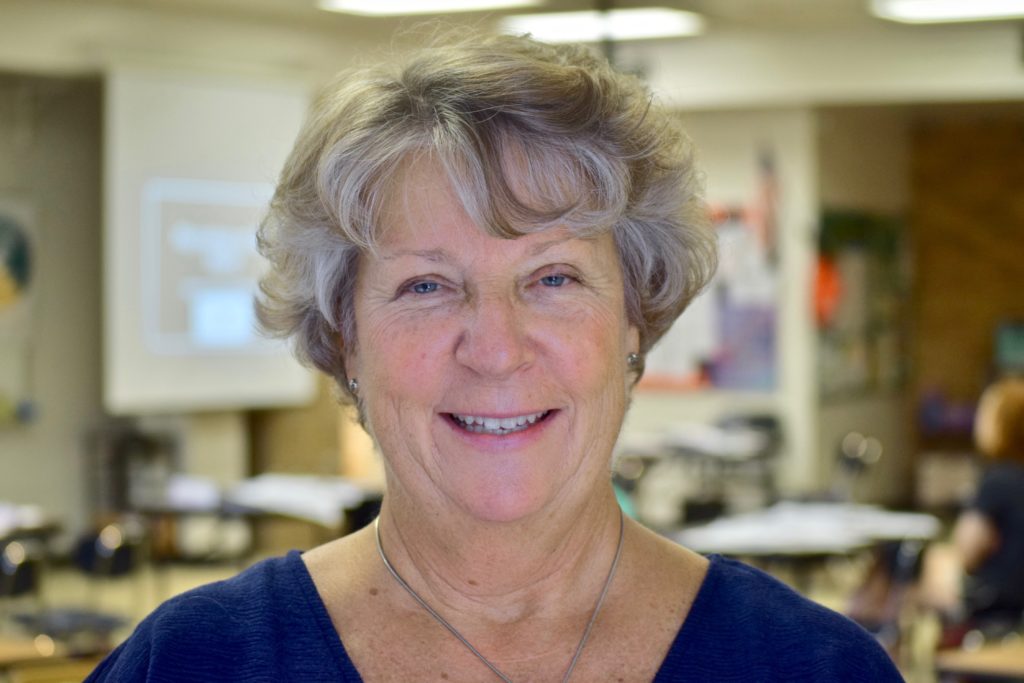
By Jo Mathis/AAPS District News Editor
Lynn Boland was a nurse at St. Joseph Mercy Hospital for 15 years before returning to Huron High School in 2008 to lead the Health Sciences Program. The program accepts 48 seniors who plan to one day enter the health field in such areas as pre-med, nursing, physical therapy, pharmacy, dentistry, and veterinary medicine.
Raised in the Detroit area, Boland attended Eastern Michigan University, where she earned a dual degree in education/special education while student teaching at Huron in 1978. In 1993, she earned her BSN from Wayne State University.
She and her husband, Joe Boland, who works in software sales and supply chain, live in Ann Arbor. They have two children: Marie, 31, who lives in Seattle and works in software sales, and David, 24, who lives in Nashville and works for Dell.
Boland enjoys gardening, reading, walking, hanging out with family and friends, and travel—especially beaches. While she has traveled extensively in previous jobs to Southeast Asia, as well as to a few places in Europe and Latin America, she says she is mostly a homebody who likes house projects, crafts and entertaining.
What is your fondest memory of teaching at Huron?
I have many, but I guess it is when my former students come back to see me.
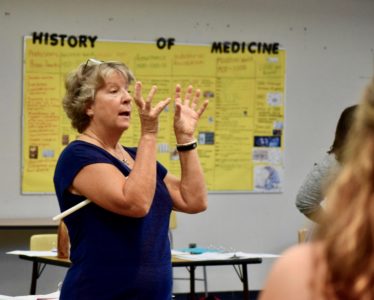
Have students changed much over the years?
Not really. They are all really very impressionable, want to find their place, be accepted, respected, appreciated. They all want someone to look past the outside, their superficial self and acknowledge them as an individual.
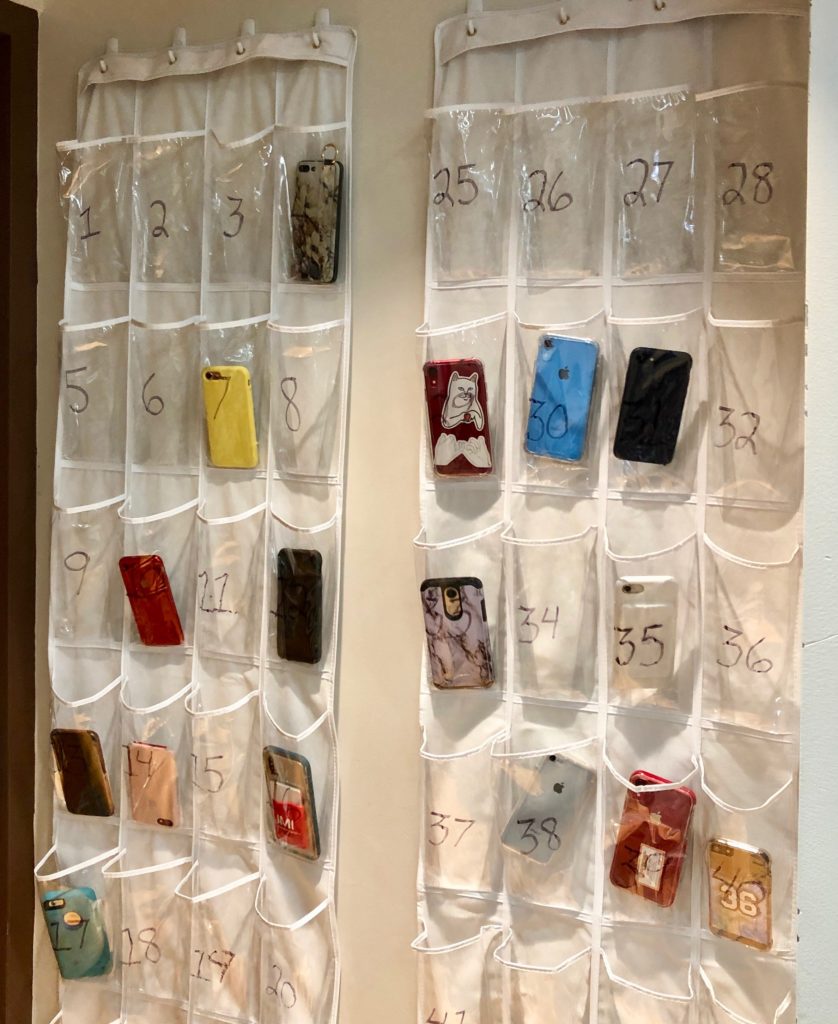
What are your favorite memories of attending high school at St. Mary’s of Redford in the late 60’s and early 70’s?
My favorite memories included sock hops on Friday nights (Stevie Wonder sang during one of those), and Bob Seger concerts at Catholic Central sock hops.
If you could go back to high school, what would you do differently?
I would enjoy the “journey” of learning and not be so focused on the outcomes. And not be so caught up in the relationship drama.
When did you decide to ask your students to place their cell phones in the “parking lot” hanging shoe bag?
Three years ago I started the parking lot to avoid disruptions from cell phones and students getting distracted. I occasionally draw a random number and then whoever has their phone in the pocket with that number gets a treat. The parking lot works pretty well.
What inspired you to become a teacher? I’ve always liked teaching. Well, I probably just liked being in charge! I am the oldest of seven and did a lot of being in charge! I also had a cousin with learning disabilities and I wanted to learn how to work with special needs children.
What’s the best compliment anyone could give you? That I inspired them to be the best healthcare provider they could be and that I modeled some of the excellent qualities that I teach.
In which other teacher’s classroom would you like to enroll, if only for a day? Why?
Homebuilding and “know your auto.” I never had those opportunities and I like to learn new skills.
In your 12 years at Huron, what’s the most important thing you’ve learned about teaching? About learning?
I’ve learned so much; but especially to accept and respect each student and the abilities they each have while challenging them to set their own goals for their future. Learning is a life-long process, there is always more ways to grow, skills to acquire, other people to learn from, new interests to develop.
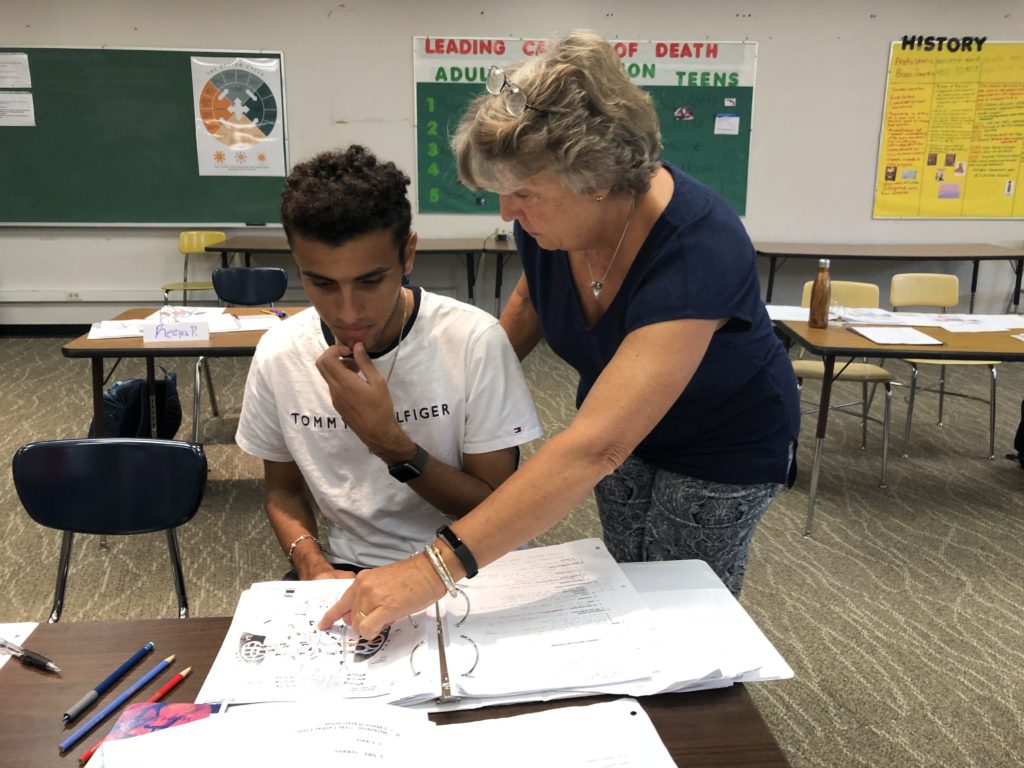
Describe an average workday.
Up early, answering emails, going over lessons for the day, making sure I have all the handouts, outlines and information sheets for the students for the day. I “teach” four hours, which is really like a performance. You have to be prepared, practiced and ready to “entertain” and engage the students, giving 100%. They deserve the best I can give them every day.
After the school day ends there seems to always be more emails, notes to go over, things to grade….sometimes until late in the evening.
If you have a bad day at school—or a bad hour—how do you recover? I have a wonderful
support system (husband, family, friends, social networks), I read a lot, I’m part of a book club
that’s been going on 15 years now, I love to walk, and have many hobbies—gardening, home projects, cooking, etc.
What advice would you give to a first-year teacher?
It is one of the greatest privileges you can have. Take feedback from your students to heart, look for ways to improve (go thru an entire
school year first, don’t think anyone expects perfection). Make time for yourself, talk to more experienced staff and incorporate best practices from them. Keep relationships with your students first. Don’t dwell on mistakes, or be too hard on yourself. This is also a learning process. Becoming a good teacher takes time and there is nothing like experience! Trust your instincts also.
What’s the happiest part of your day?
When it’s over and I know what I’ve done makes a difference, and set a goal to improve something for the next day or week.
Apps you can’t live without:
Not sure I have many, my favorite resources are Medscape, Word Genius, Amazon book reviews, Pinterest, and of course HomeAway to plan my next vacation!
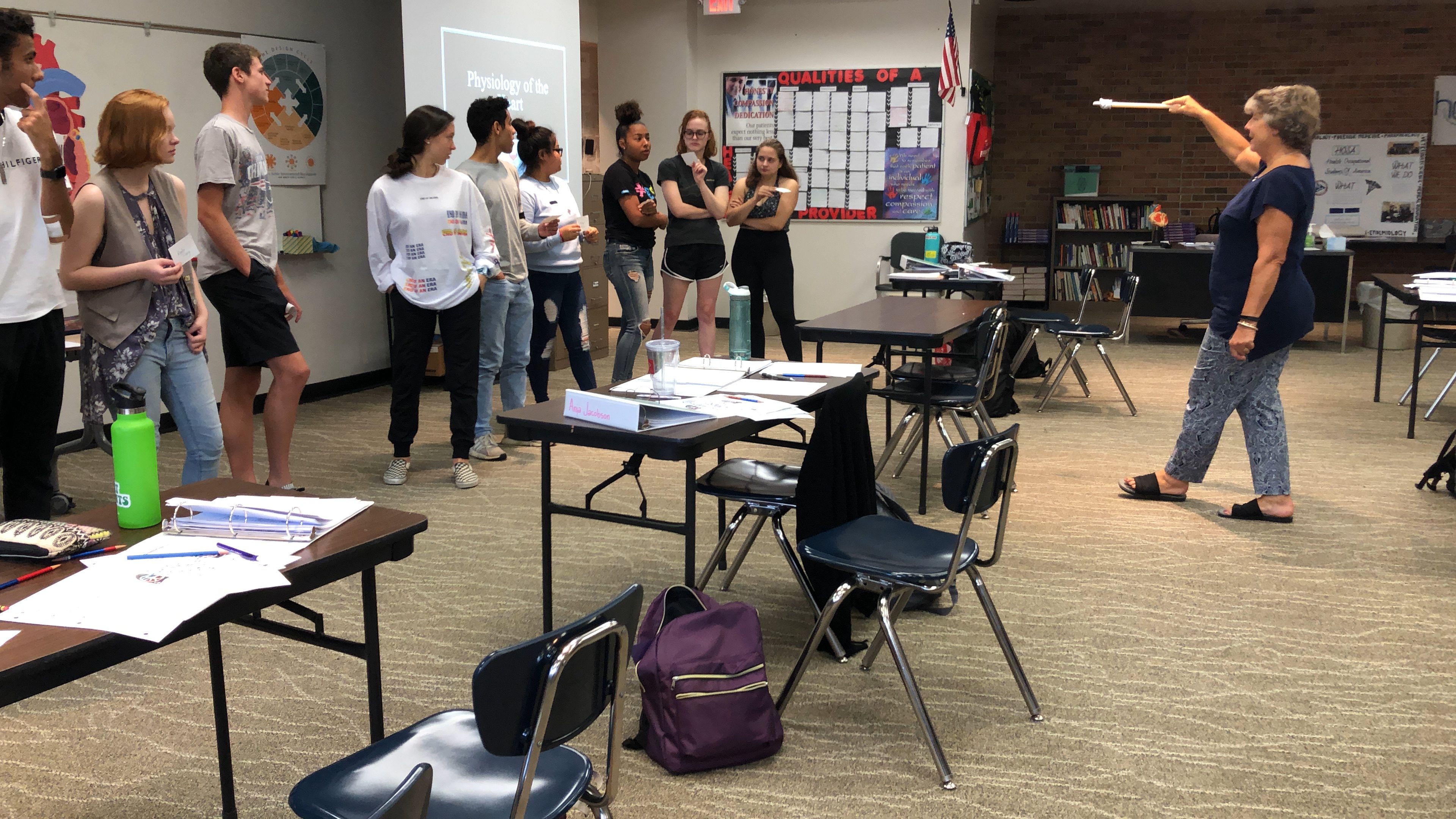
Must-see TV:
Blue Bloods and Downton Abbey. I enjoy Netflix and Amazon Prime more than regular TV programs.
What do you know about teaching now that you wish you’d known that first year?
You can learn so much from experience, no one expects you to be perfect. Just do what you love.
How do you keep students engaged?
Share from my own clinical experiences, tell stories as examples of the key points, make lessons interactive when possible. When my content lends to specific skill training, we have a lot of fun learning new skills and practicing them together. I try to make memorization a bit easier with activities, and use organizational skills to keep track of all the information they are learning. Study skills and organizational skills are important.
How do you show school spirit?
Over the years I have been a class advisor and helped plan senior events with the students. I participate in school events as I am able, chair the Faculty Committee, have helped lead different efforts to help support my colleagues (potlucks for the staff, attending PTSO meetings, helping initiate and leading the Huron grounds improvement efforts). I try to be a positive influence by my presence and attitude.
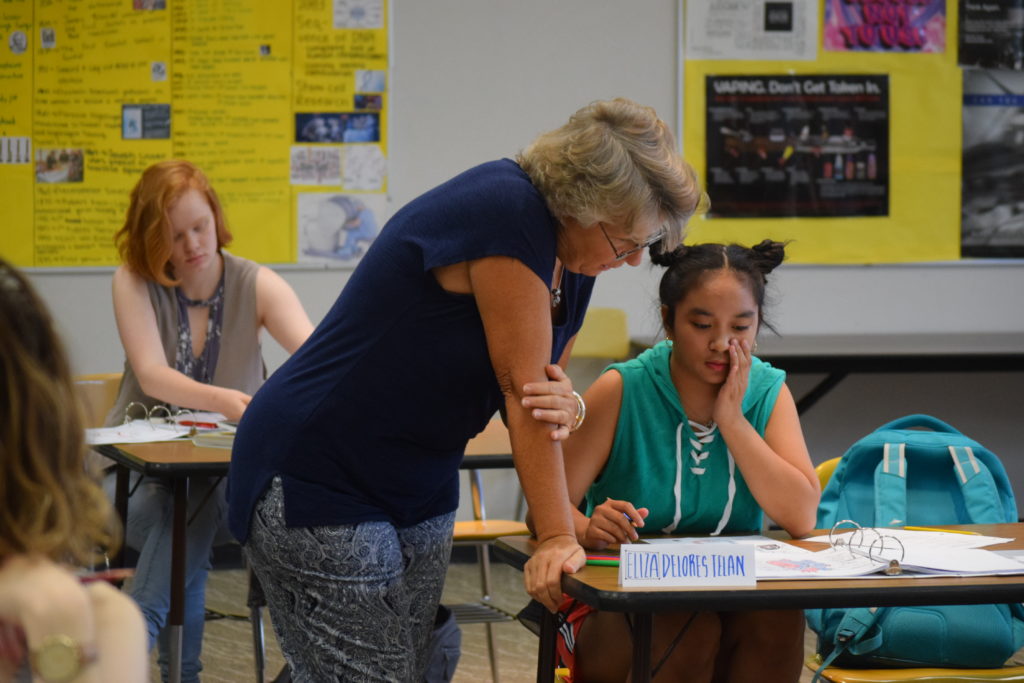
What is the most rewarding part of teaching?
When my students who have graduated come back and visit, send me emails, ask for advice. I continue to keep in touch with many former students and I love to have them visit and share their stories with my current classes.
You have pointed out that health care is one of the largest, fasted growing fields, with a ton of job security. Is there a risk of students entering this field simply because there are lots of jobs? Can you tell when a student isn’t right for health care?
This is an area that I feel I can have the most impact. I have worked in the field and with others who have obviously chosen it for the wrong reasons. We need healthcare workers who are dedicated, passionate, and possess both intellectual competency as well as emotional competency. They need to genuinely care for another’s well-being, have a desire to help others, be a team player, and work well with others. I bring in speakers who can model these qualities, which go beyond personalities and individual temperaments. I have “exit interviews” with each of my students at the end of the year to go over feedback from the mentors they shadowed as well as what I have learned about each one of them. It is my last official opportunity to discuss their future goals and aspirations and give them input to help them succeed.
How do you recharge?
Walk, read, garden in the warmer months, spend time talking to my husband and friends, cook, watch a good movie.
How do you spend your summers?
Gardening, taking on a summer project (usually some bigger craft project or home improvement), sitting at the swim club pool and reading, visiting my son in Nashville), try and visit a beach somewhere – I love to walk on the beach.
What’s most exciting about your professional life right now? Your personal life?
Knowing that I could retire any time, but knowing that I won’t (just yet) because I love what I am doing, and I’m not ready to stop.
How do you think students will remember you and your class?
I pass out an end-of-the-year survey to my classes each year. They most all describe it as a class that was different than any other at Huron; life-changing; helping prepare them for the next level—whether they go on to a healthcare course of study or not.
I received the following letter and email from two former students:
“As I prepare to begin my final year of undergraduate studies at Wayne State University, I wanted to send you a message to thank you once again for your dedication, enthusiasm, and passion for helping students like myself succeed. I was able to recognize so many of my strengths (and weaknesses) through the program, and I continue to utilize so many of the skills I acquired in my everyday opportunities. As I reflect back, I realize that the program was more than another class, it was a year-long workshop on how to prepare for the rest of our life. I will forever be grateful to teachers like yourself who inspire youngsters to make the community a better, safer, and healthier place.”
“Congrats on leading the program through its 40th year, you have definitely been a role model for hundreds of students. Hopefully one day I will also be able to help others achieve their dreams just as you have helped me.”
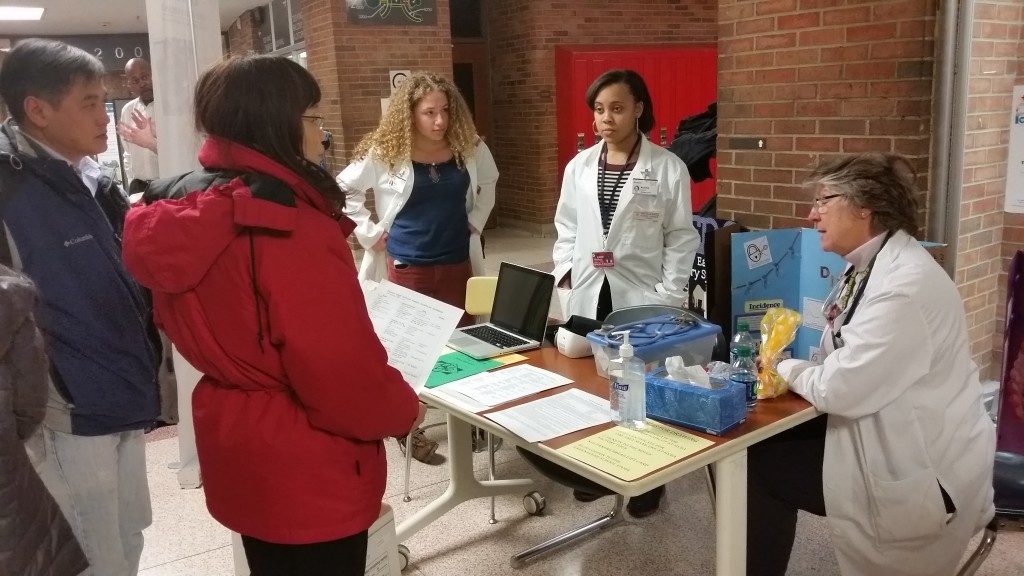

Be the first to comment